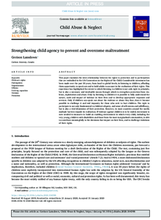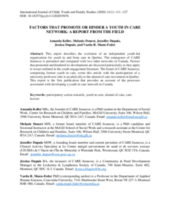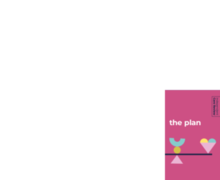Displaying 101 - 110 of 375
This article, an auto-ethnographic collaboration between a social work professional and two care leavers, aims to address the problems with records compiled by care workers, social workers and other relevant personnel by constructing a ‘virtual archive’ consisting of several hypothetical records compiled in the style typically employed by caseworkers, which are then critiqued by the care leavers.
This paper from the Children and Youth Services Review reflects on the collective participation of young people in care in a rights-based initiative intended to facilitate input into service and policy development in Ireland.
This paper examines the inter-relationship between the rights to protection and to participation that are embodied in the UN Convention on the Rights of the Child.
This article discusses the interaction between protection of maltreated children and their participation. Five aspects of child participation in the field of child maltreatment will be presented: children's participation in the definition of child maltreatment phenomena; children's participation in measuring the prevalence of child maltreatment; children's participation in clinical assessments; children's participation in in the decision-making process in child protection system; and children's participation in the efforts to prevent child maltreatment.
This report describes the evolution of an independent youth-led organization for youth in and from care in Quebec, Canada
This Podcast series explores the experiences of people who grew up in the care system from all over the world. It is presented by a care-leaver Thomas Mongan and an Advocate Peter Lane.
The purposes of this study are to document and analyse the point of view of children in foster families on their subjective well‐being and also to identify contextual factors that influence it.
In this study, the authors extracted information about children's statements from court file data of 220 child protection cases in Germany.
One of several reports produced as part of the Scottish Independent Care Review, The Plan outlines how to implement the changes recommended in The Promise.
The Independent Care Review’s aim is to identify and deliver lasting change in Scotland’s care system and leave a legacy that will transform the wellbeing of infants, children and young people.




